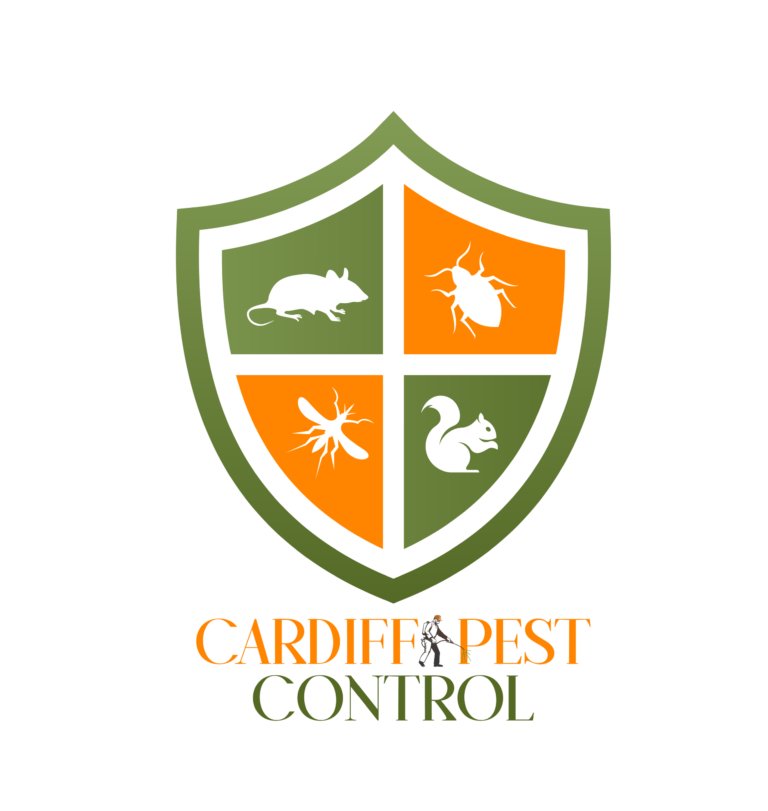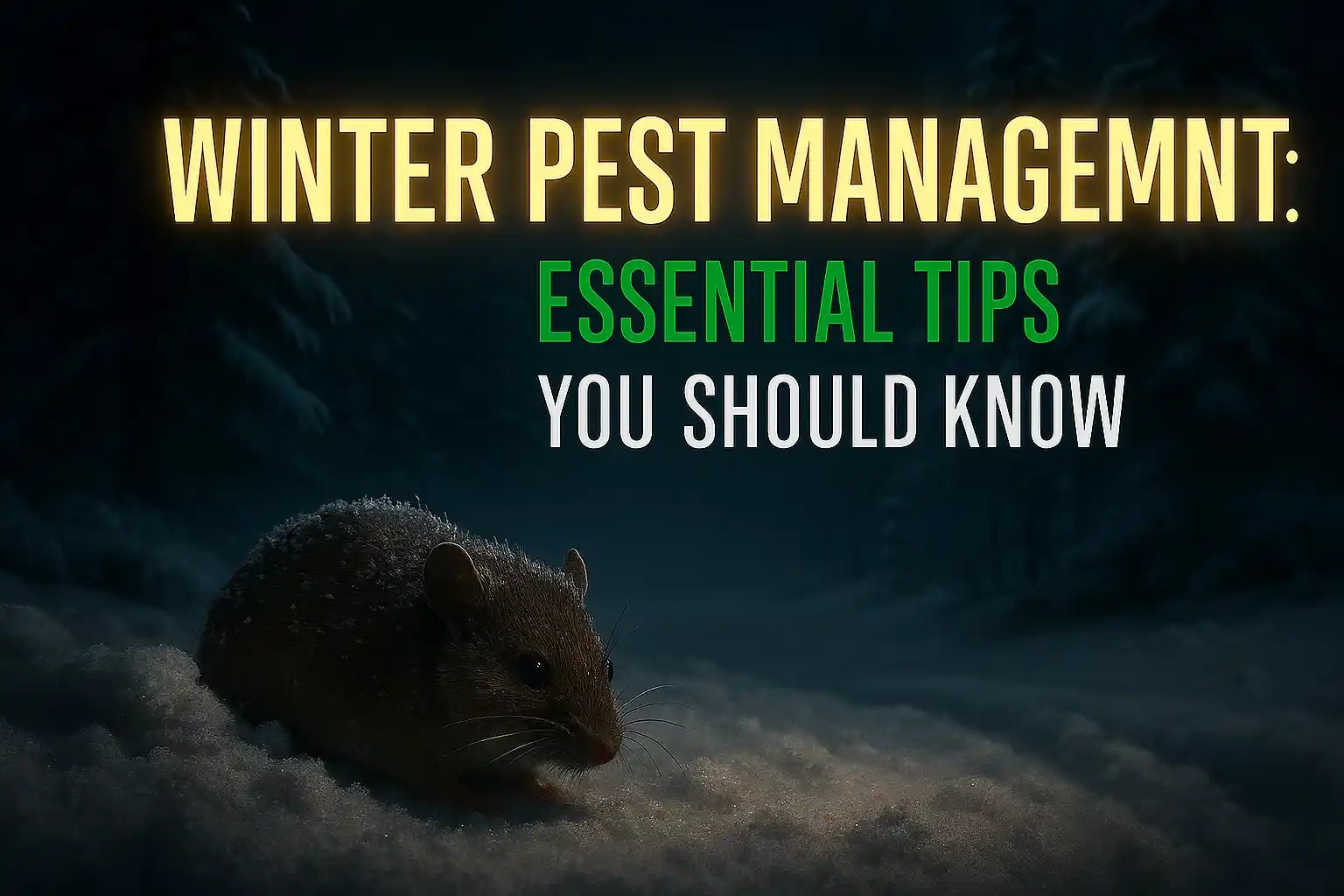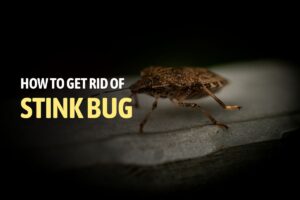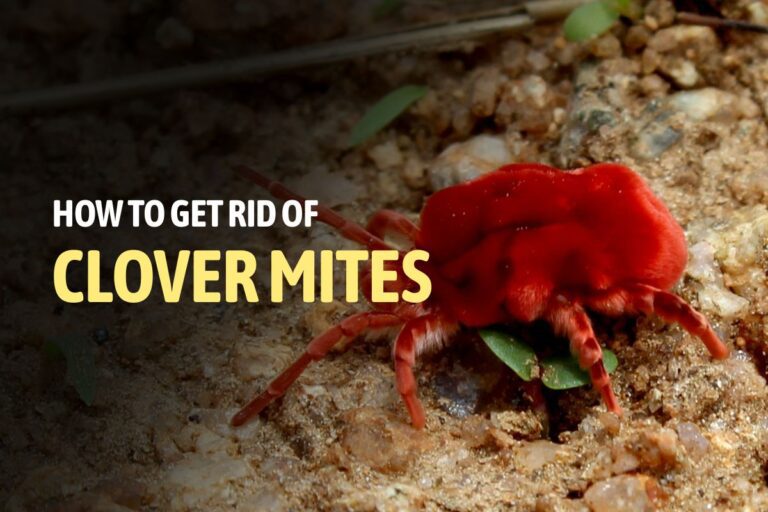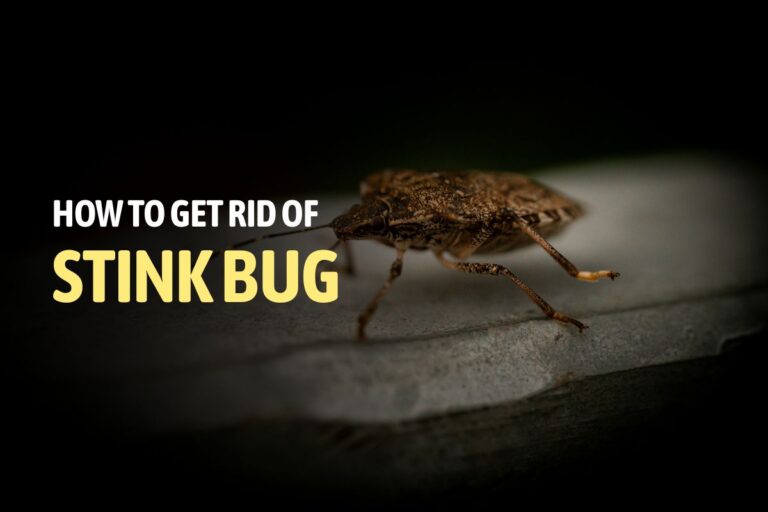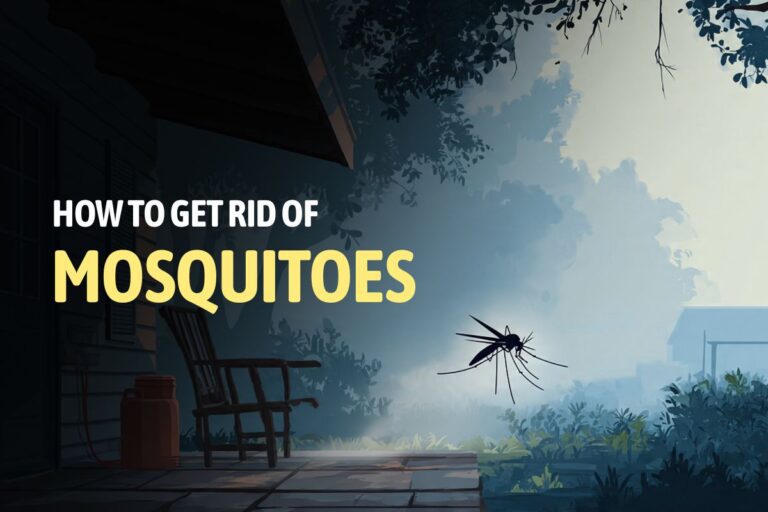Table of Contents
ToggleWinter is here, and while we enjoy the warmth of our homes, cold-weather pests are also looking for shelter indoors. Effective winter pest management is essential to keep your home safe from unwanted invaders. Pests such as rodents, cockroaches, spiders, and silverfish can cause property damage and pose serious health risks.
In this blog post, we’ll cover the best winter pest control methods, how to prevent infestations, and why regular pest control is important during the colder months.
Why Pests Are a Problem in Winter
During winter, many pests seek warmth, food, and shelter inside homes. The drop in temperature forces them to find safe hiding spots, which can lead to winter pest problems. Common entry points include:
- Cracks in walls
- Gaps under doors
- Openings around windows
Without proper winter pest prevention, these pests can multiply quickly and become a major nuisance. Learn more about common household pests and how to control them to keep your home safe year-round.
Common Winter Pests to Watch Out For
Here are the most common pests that may invade your home during winter:
1. Rodents (Mice & Rats)
Rodents are one of the biggest winter pests homeowners face. They can squeeze through small gaps, chew on wires, and contaminate food. Rodent control in winter is essential to prevent property damage and health hazards. If you notice activity, consider contacting Rodents Control services for professional help.
2. Cockroaches
Cockroaches thrive in warm, humid areas and can be a problem even during winter. They carry bacteria and can trigger allergies. Keeping your home clean and sealing entry points are effective ways to prevent infestations. For serious cases, seek Cockroach Control services.
3. Spiders
Spiders often enter homes in search of food (other insects). While most are harmless, some species can be venomous. Regular cleaning and sealing cracks can help with residential insect control.
4. Silverfish & Other Insects
Silverfish, carpet moths, and other small insects thrive in damp, dark places like basements and attics. If you notice damage to fabrics or carpets, professional Carpet Moths Extermination services can help.
Read more: How to Control Common Household Pests Effectively
Signs of a Winter Pest Problem
Early detection helps prevent serious infestations. Watch for:
- Droppings and urine stains – Common for rodents
- Strange noises – Scratching or scurrying sounds in walls or ceilings
- Gnawed wires and furniture – Signs of rodents
- Unusual smells – Musty or foul odors from pests
- Shed wings and egg cases – Indicators of cockroaches or other insects
Best Winter Pest Control Methods
Follow these strategies to keep your home pest-free during winter:
1. Seal Entry Points
Pests can easily enter homes through tiny cracks, gaps, and openings around doors, windows, vents, and foundation cracks. Winter pest-proofing involves carefully inspecting your home for these entry points and sealing them with caulk, weather stripping, or steel wool. Don’t forget areas around pipes, cables, and attic vents, as rodents and insects often exploit these spots to gain access. Properly sealing your home not only keeps pests out but also improves energy efficiency during the colder months.
2. Proper Food Storage
Pests are always on the lookout for accessible food. To minimize attraction, store dry foods, grains, and pet food in airtight containers. Clean up crumbs immediately, wipe kitchen counters regularly, and avoid leaving dishes in the sink overnight. Regularly check pantry shelves for signs of infestation and rotate stock to prevent pests like silverfish or cockroaches from thriving. For more detailed tips, explore our guide on residential insect control.
3. Regular Cleaning
A clean and well-maintained home is far less appealing to pests. Vacuuming carpets, sweeping floors, and taking out the trash frequently can prevent pests from finding food or hiding spots. Decluttering storage areas, attics, and basements also reduces shelter for rodents and insects. Don’t forget to clean under appliances and furniture, as pests often hide in dark, undisturbed areas. Learn more about why regular pest inspections are important to catch infestations early.
4. Fix Moisture Issues
Moisture attracts many winter pests, including cockroaches, silverfish, and ants. Leaky pipes, damp basements, and poorly ventilated bathrooms create ideal conditions for infestations. Fix any leaks promptly, use dehumidifiers in humid areas, and ensure proper ventilation in attics and crawl spaces. Reducing moisture levels not only prevents pests but also helps maintain a healthier home environment.
5. Keep Firewood and Trash Away
Stacking firewood too close to the home or leaving garbage bins unsealed can create perfect hiding spots for rodents, spiders, and other pests. Store firewood at least 20 feet away from your house, and elevate it off the ground if possible. Always keep trash bins tightly closed, and clean them regularly to prevent attracting pests. These small preventive steps can dramatically reduce winter pest problems before they start.
Pest-Proofing Homes for Winter
Preventive measures are key to avoiding winter pest problems:
- Install door sweeps and repair damaged screens
- Keep storage areas organized and clutter-free
- Use weather stripping on windows and doors
- Clean kitchen surfaces to remove food residues
Rodent Control in Winter
Rodents are among the most troublesome cold-weather pests. Prevent them by:
- Blocking holes and gaps with steel wool or caulk
- Keeping pet food in sealed containers
- Using traps in active areas
- Contacting professional Rodents Control services if the problem persists
Winter Insect Control: Preventing Bugs Indoors
Even in winter, some insects stay active indoors. Here’s how to keep them out:
- Reduce indoor humidity levels
- Store pantry items in airtight containers
- Check for cracks and repair them promptly
- Seek residential insect control for infestations
Professional Winter Pest Control: When to Call Experts
DIY methods work for minor issues, but severe infestations require professional Winter Pest Control services. Cardiff Pest Control offers expert solutions to protect your home during winter. Contact us today for a customized pest control plan.
Conclusion
Winter Pest Management is essential for keeping your home safe, healthy, and pest-free. Ignoring pest problems can lead to structural damage, contamination, and health risks. Early detection and prevention are key.
For recurring or severe pest issues, professional help is the best solution. Cardiff Pest Control specializes in effective and customized pest management solutions using advanced techniques to eliminate pests and prevent future infestations. Don’t let pests take over your home this winter contact us for expert services and enjoy a pest-free season.
Frequently Asked Questions
1. What are the most common winter pests?
Rodents, cockroaches, spiders, silverfish, and termites.
2. How can I prevent pests from entering my home in winter?
Seal cracks, store food properly, and maintain cleanliness.
3. Do pests hibernate in winter?
Some become inactive, but many seek warmth indoors and remain active.
4. What’s the best way to get rid of rodents in winter?
Seal entry points, remove food sources, and contact professional Rodents Control services.
5. Should I hire a professional for winter pest control?
For severe or recurring infestations, hiring a professional service like Cardiff Pest Control is the safest and most effective option.
